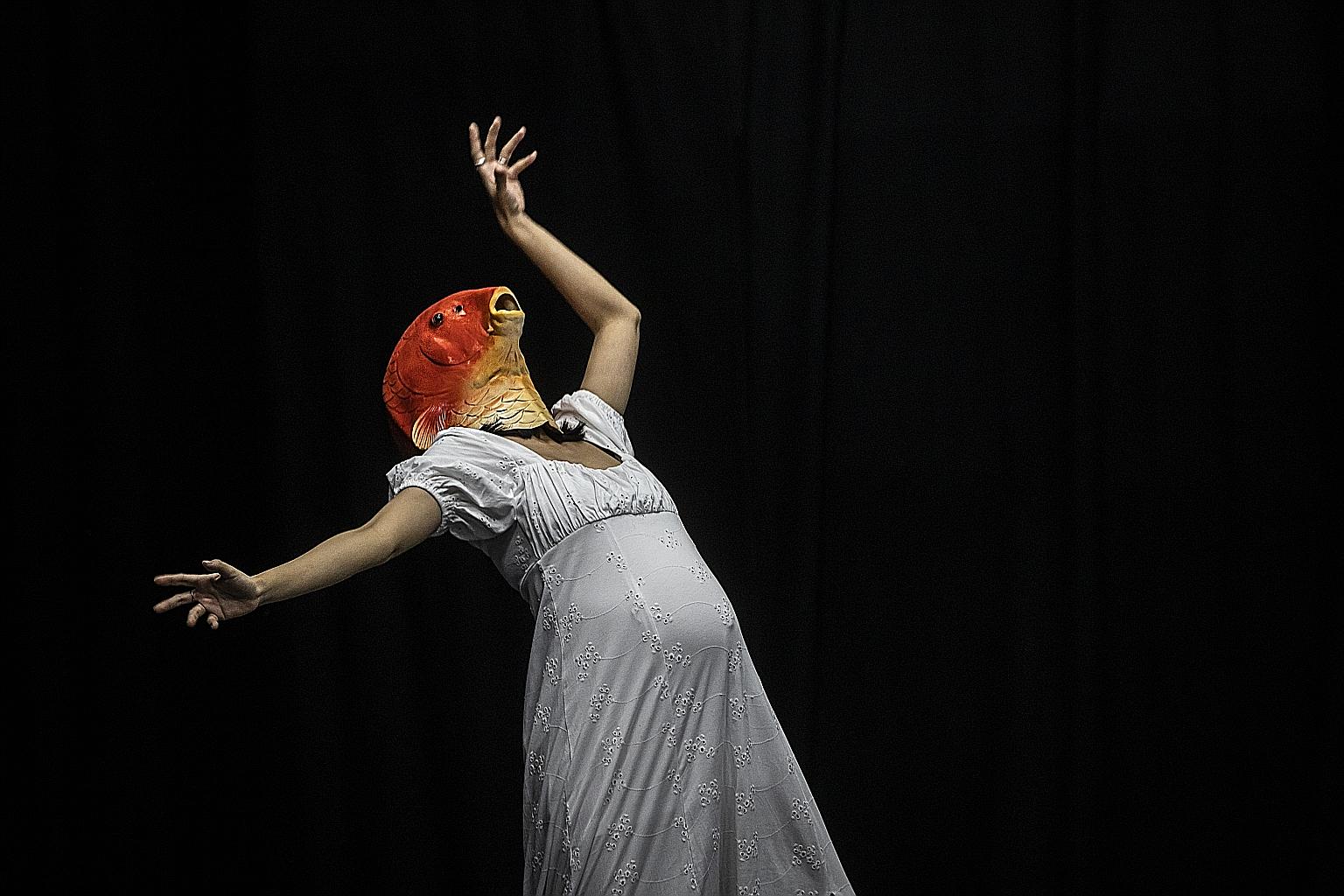Defying theatrical conventions
Sign up now: Get ST's newsletters delivered to your inbox

Offstage 3.0 performer Grace Lee-Khoo (above).
PHOTO: EMERGENCY STAIRS
Encore: In this weekly review feature, The Straits Times chronicles the recovery of Singapore's performing arts industry - whether through digital innovation or cautious reopening - after months in the dark due to the Covid-19 pandemic
THEATRE
OFFSTAGE 3.0
Emergency Stairs
M1 Singapore Fringe Festival
Nanyang Academy of Fine Arts Studio Theatre, last Friday
Experimental theatre company Emergency Stairs is no stranger to pushing boundaries, but some of its previous performances have suffered from a lack of structure.
The Offstage series is a long-term research and experimental project, with its first iteration in 2018 reimagining offstage roles as characters, and its second edition in 2019 featuring a performance staged behind closed doors, with no audience.
This third version puts the spotlight on how theatre is measured: Should it be a product? Can it be quantified? How market-oriented is it?
Thankfully, the hour-long production organised its many self-referential questions into a sequence of easily digestible scenes, allowing viewers to better appreciate the significance of the theatrical conventions being challenged - and there were plenty.
With no dimming of the house lights when the show commenced, the performance extended beyond the stage, and included every reaction and shuffle from the audience.
White tape, typically used to demarcate areas in a performance space, was also peeled off the floor at one point, altering the space's shape and meaning.
In a brilliant moment of satire, performer Chong Woon Yong mimed a fish trapped in a tiny invisible bowl, symbolising an artist's repression, as the 1993 Mandarin song The Fish That Swims All Day by the late Taiwanese singer Chang Yu-sheng played.
Chong supplied many of the night's chuckle-inducing moments, especially when he read stuffy e-mails from a government statutory board out loud.
As the show progressed, it constantly felt like the rug was being pulled from underneath this writer. Production choices were consistently undermined, presented instead as a never-ending struggle between artists, regulators and stakeholders.
There were also many metatheatrical moments, such as when an "audience member" played by performer Jasmine Xie stood up, identified herself as a theatre reviewer and proceeded to explain her difficulties reviewing the performance, which she did not understand.
The reveal emphasised that, like theatre's creation, its critique is often laden with expectations about how a piece of theatre ought to be measured.
Perhaps a more meaningful approach is to just accept a production for what it is - in this case, a challenging work which is still surprisingly palatable.


